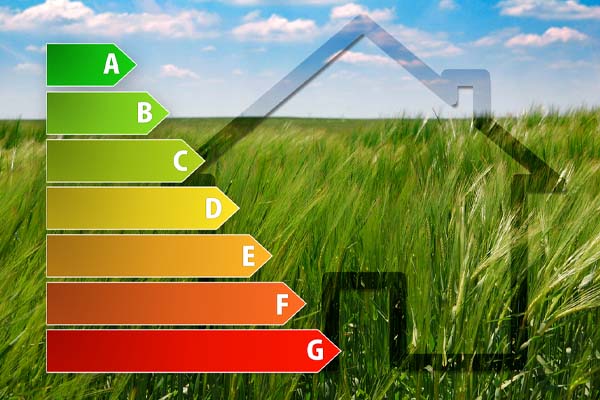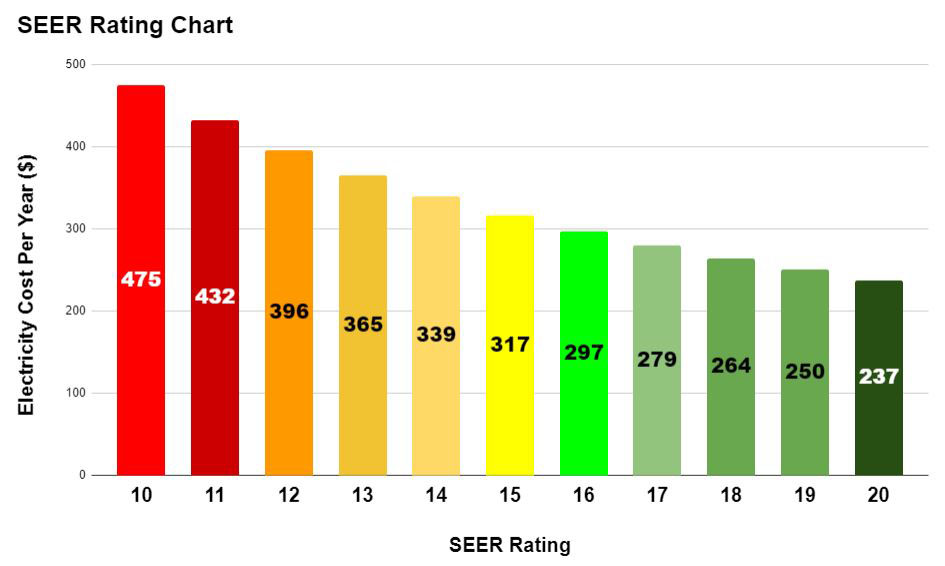
Visit Our Homepage | Book Online | Learn More About Us
When it comes to buying a new air conditioner, one of the most important things to consider is its SEER rating. SEER stands for Seasonal Energy Efficiency Ratio, and it is a measure of how efficiently your air conditioner can cool your home. In this article, we will discuss what SEER rating means, how it can impact your energy bills, and why it is important to consider when purchasing a new air conditioner.
What is SEER Rating?
SEER rating is a measure of the cooling output of your air conditioner divided by the energy it consumes over an entire cooling season. It is calculated by taking the total cooling output of an air conditioner over a cooling season (in BTUs) and dividing it by the total energy consumption (in watt-hours) during that same period.
The higher the SEER rating, the more efficient the air conditioner is at cooling your home. In general, a SEER rating of 14 or higher is considered to be energy efficient.

How Does SEER Rating Affect Energy Bills?
SEER rating can have a significant impact on your energy bills. Air conditioners with higher SEER ratings are more efficient, meaning they require less energy to cool your home. This translates to lower energy bills over time, as the air conditioner consumes less energy to produce the same amount of cooling.
For example, let’s say you are replacing an old air conditioner with a SEER rating of 10 with a new air conditioner with a SEER rating of 16. If you were spending $1,000 a year to run your old air conditioner, you could potentially save up to $375 a year on your energy bills by upgrading to the more efficient air conditioner.

Why is SEER Rating Important?
SEER rating is important for several reasons. Firstly, it can impact your energy bills, as we discussed earlier. A more efficient air conditioner with a higher SEER rating can save you money over time on your energy bills.
Secondly, SEER rating can impact the comfort of your home. A more efficient air conditioner can cool your home more effectively, meaning you can maintain a comfortable temperature in your home without having to run your air conditioner as often.
Lastly, SEER rating can impact the environment. An air conditioner with a higher SEER rating consumes less energy, meaning it produces fewer greenhouse gas emissions and has a smaller carbon footprint.
In Conclusion
SEER rating is an essential factor to consider when purchasing a new air conditioner. It measures the cooling output of your air conditioner divided by the energy it consumes over an entire cooling season. A higher SEER rating means a more efficient air conditioner, which can result in lower energy bills, increased comfort, and a smaller carbon footprint.
If you are in the market for a new air conditioner, be sure to consider the SEER rating and consult with a licensed HVAC contractor to determine the best option for your needs and budget. Additionally, consider exploring more on energy-efficient cooling options to find the right fit for your home and save money over time. For any service needs, feel free to book an appointment directly with us.
